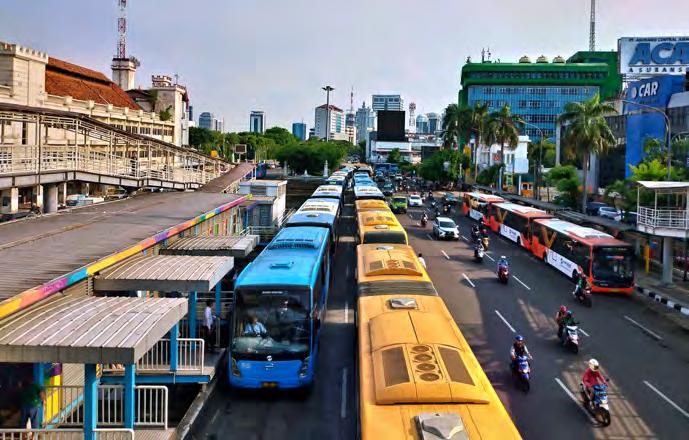
2 minute read
JAKARTA, INDONESIA
LEADING THE WAY IN INDONESIA
Of the estimated 10.3 million people living with diabetes in Indonesia, only 2.7 million have been diagnosed with the condition.2 Because of this, many people with diabetes have already developed serious diabetes-related complications by the time they are diagnosed.67 This can, in part, be attributed to the imbalance between the large number of people with diabetes and the small number of specialists available to treat them.
LIMITED SCREENING AND TREATMENT
Jakarta, which is the city with the highest prevalence of diabetes in Indonesia, joined Cities Changing Diabetes in 2018. As a first step, data were collected at 10 primary care facilities. The research involved 76 GPs and 514 people with diabetes.
The data confirmed that the majority of people with diabetes in Jakarta are undiagnosed as a result of limited public knowledge and awareness of diabetes. Primary care facilities are meant to function as the gatekeeper for screening and managing diabetes; however, this system requires improvement, and only a limited number of people with diabetes achieve their treatment targets. Poor implementation of the referral system means that most people with type 2 diabetes are treated at hospitals due to a lack of trust in the primary care services.
EARLY DIAGNOSIS AND OPTIMAL CONTROL
The Cities Changing Diabetes partners in Jakarta are aiming to make the city a role model for the management of diabetes in primary care. The programme focuses on two action pillars: early diagnosis and optimal control of diabetes management.
Early diagnosis: Through the Integrated Health Counselling Post (POSBINDU) and a public awareness campaign, the Cities Changing Diabetes partners hope to increase the rate of diabetes diagnosis. Their ambition is to scale up POSBINDU activities in university campuses, offices, schools, shopping centres and places of worship.
Optimal control: To improve the expertise of community health centres (Puskesmas), the partners will develop the Diabetes Management Guideline in Puskesmas and provide training for HCPs to improve their competences related to diabetes diagnosis and management. The partners hope these initiatives will improve treatment outcomes in patients. However, the focus will not only be on HCPs. The programmes will also ensure that the support system – referral system, treatment availability and pharmacy supply – at primary care level is working well to support diabetes management.
Jakarta Provincial Government
Jakarta Health Agency (DINKES)
Danish Embassy
Endocrinology Association (PERKENI)
Medical Research Institution, University of Indonesia (IMERI FK UI)
Ministry of Health
BPJS (Indonesian national health care insurance)
Centre for Health Economic and Policy Study (CHEPS), University of Indonesia

IN JAKARTA
MORE THAN 50%
OF PEOPLE WITH TYPE 2 DIABETES ALREADY HAVE A DIABETES-RELATED COMPLICATION BY THE TIME THEY ARE DIAGNOSED67










